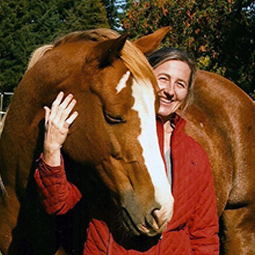2200015 - Advanced Equine Behaviour
Course Description
This course will provide you with a depth of knowledge on equine behaviour, learning and related welfare issues. During the course, you will observe a horse’s behaviour over time and activity, design a training activity to teach a new behaviour, create a behaviour evaluation checklist to make a well - informed evaluation of a presenting behaviour - along with other activities - with the result of developing several tools and resources aimed at analyzing, evaluating, and creating management practices that work for the horses in our care and based on the evidence available to us. Understanding the abnormal behaviour of horses and the management decisions that contribute to them will be a part of assessing and evaluating current management practices. Also, you will have the opportunity to research a current or special topic in equine behaviour research as part of your work in this course.
What You'll Learn
By the end of the course, the learner should be able to:
- Interpret, analyze, and critique behavioural research reports and methods;
- Locate, access, and evaluate sources of behavioural research and industry data;
- Effectively report and assemble research data in a written paper and presentation;
- Interpret a horse’s behaviour in a given situation using physiological, physical, social, and behavioural information;
- Identify potential causes and generate appropriate solutions for such behaviour to improve the horse’s welfare; and
- Systematically evaluate management and training practices that affect equine behaviour and welfare.
Additional Requirements
Students must have successfully completed Equine Behaviour or the equivalent knowledge/experience to register in this course. Equivalencies will be considered on an individual case basis.
- This course is intended for adult learners who are at least 18 years of age.
- You may take this as an individual course or choose to complete the Equine Welfare Certificate.
- You do not need access to a horse or facility to participate and be successful in this course.
- You can expect to spend 6-10 hours per week to complete the course material, activities, discussions and assignments.
Sponsors
- Equine Guelph
- Open Learning and Educational Support
Additional Requirements
Applies Towards the Following Certificates
- Equine Welfare Certificate : Electives
Technical Requirements
You are responsible for ensuring that your computer system meets the necessary system requirements. Use the browser check tool to ensure your browser settings are compatible and up to date (results will be displayed in a new browser window).
*Course details are subject to change.


